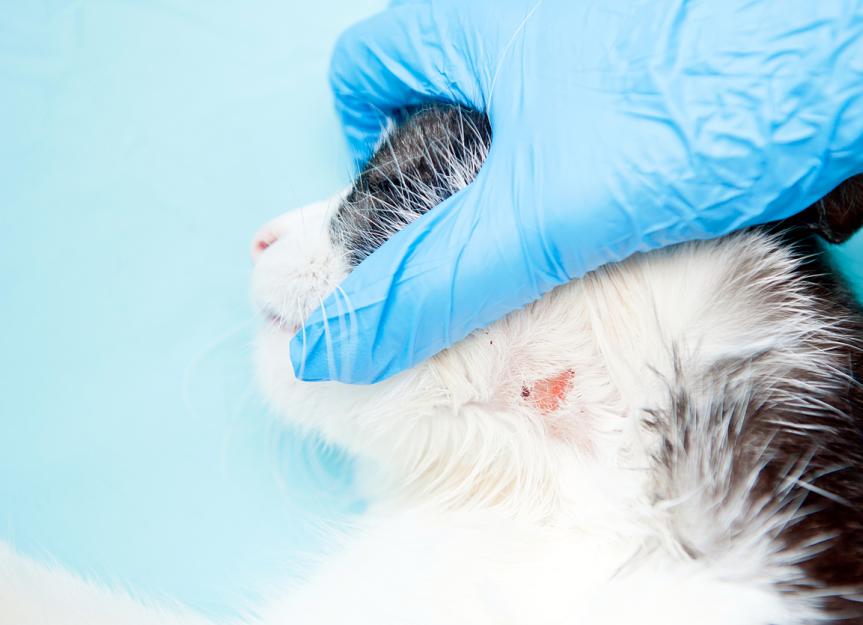In my other article “My Search for the Perfect Pee Pad”, I shared how I kept Bob, my 18 year-old paraplegic cat clean and comfortable. Here I reflect on my time with Bob during his final journey from late Dec 2023 to 22 Jun 2024; and hope that it will help some of you find comfort that you are also doing a great job in caring for your pets.
I engaged VetMobile to do house visits when Bob started moving slightly awkwardly with a stiff hind limb in July 2023. This reduced the stress for Bob (and hassle for me) to leave the house for appointments at a vet clinic. When Bob’s hind limbs weakened in late December 2023, an x-ray done at a vet clinic showed bone spurs at the spine near the joint of his hind legs, an indication of spondylitis causing nerve impingement. He initially could move his forelimbs and groom his upper body. In end April 2024 onwards, Bob’s forelimbs were affected and he had to rely on me to move him. I had to introduce some changes for Bob at VetMobile/Dr Angeline’s advice:
I could confidently perform the above, thanks to Dr Angeline’s clear instructions and encouragement whenever I sought her advice during the house visits or over WhatsApp. During VetMobile’s visits, Dr Angeline also did acupuncture to help Bob feel better based on his then condition and level of Qi (energy). Unlike our earlier consultations at other vet clinics, we did not feel hurried and Dr Angeline and Zheng Hao would make effort to get Bob feel at ease and chat with me to find out how I was coping.
[Note: Please consult your vet before attempting any of the above on your pet.]
For my peace of mind, I initially camped at the living room near Bob’s sleeping area and set a few alarms on my handphone to wake up a few times to check on him if I slept on my bed in my room. Subsequently I put a small mattress/tilam in my bedroom and another outside my room. At night I slept next to him and had good quality sleep by waking up once to change his wet pee pad (do check my other article on how I tried to use various pee pads effectively). In the day time, he would rest at the cooler part of the living room and enjoyed the attention from my parents whenever they pottered around the house.
I could blame myself for not managing Bob’s weight (then at 6kg) better with his diet, but I focused on helping him to cope with his sudden immobility. His weight dropped to 3.5kg in his last two months due to loss of muscle mass and smaller appetite. While feeling sad at times seeing Bob not being able to do his usual activities on his own, I was grateful for the precious 6 months to care for him.
I had to be mindful of my back and wrists when carrying and moving Bob around at his initial weight of 6kg. It helped that I was doing mobility/strengthening exercises. When I fell sick or unwell a few times, I prioritised feeding Bob and doing minimal cleaning (i.e. wet pet tissue) instead of the intensive version (i.e. washing with pet shampoo and subsequently water before drying Bob with towel, as described in my other article), before getting more sleep/rest. I knew that I could only take care of Bob well when I quickly recovered and regain my strength. I also eat proper and nutritious meals, while indulging in other cravings of fried food and desserts at times.
I am grateful for my supportive family and my close friends who would regularly check in on me and Bob, encouraged me and sent me care packs. When meeting up with close friends for meals and gatherings, I shared how I felt about caring for Bob, his antics and also actively listen to my friends as I am interested in their growth and concerns. I want to nurture such relationship and friendship with two-way thoughtful communication and actions, instead of focusing on myself and Bob.
I tried not to be overly affected by any inconsiderate and toxic comments and avoid/minimise interactions with toxic people. I believe in my decision not to put Bob to sleep early as he was interested in his food and nearby surroundings and enjoying my attention and cuddles even till his last day. I found adopting a calm mental state of mind when feeding and cleaning Bob to be very important for both of us. At times, Bob refused to eat more and I would need to be patient to coax him to take a bit more (talk to him or let him rest a bit before offering the food bowl again). When he really did not want to take more food, I would just try to get him to eat more at the next meal. Similarly, cleaning him took quite a bit of time (at least 30 mins), with me gently moving and lifting him so as not to hurt his stiff joints, back and limbs. I would plan ahead and feed/clean him earlier before any work meeting (when working from home), heading out to work/for appointments, etc. This was to avoid me getting stressed/anxious for running late. Developing mental strength was useful for me being Bob’s sole caregiver and also to cope with his eventual departure.
Bob seemed a bit uncomfortable the night before he took his last few breaths and passed away on 22 Jun 2024 early morning with me next to him. Crying on and off, I cleaned and prepared his body for collection by a cremation company. I did not attend the private cremation service, since I already said my farewell to Bob at home. During the first few weeks, I would arrange flowers and tokens from my friends and my clay figurine of Bob around Bob’s urn in my room, as the action brought me comfort and even now when I look at his photo and urn. While I was mentally prepared that Bob would leave anytime in June, I still miss him deeply and tear a bit sometimes whenever looking at his photos on my handphone or thinking of him. I respect my parents’ position of not having another pet cat since I am staying with them. I get my cat therapy from the few community cats in my estate and continue to mention about Bob in my conversations with my family and friends.
I am grateful for Bob’s companionship for the past 16 years – he has made me a bit stronger and wiser and helped me appreciate my dear family and friends even more.
This article was contributed by our client, Jacin, who kindly offered to share her expertise on caring for her geriatric cat with special needs.

